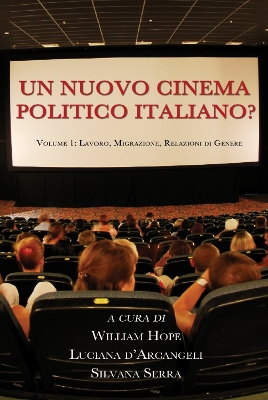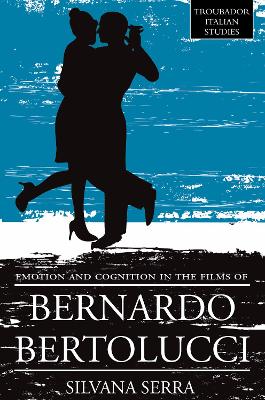Troubador Italian Studies
2 total works
Un Nuovo Cinema Politico Italiano?
by William Hope, Luciana d'Arcangeli, and Silvana Serra
Published 1 April 2013
The book is the first to examine contemporary Italian cinema from a socio-political perspective, drawing on the expertise of film scholars, political activists, and directors, including the Oscar-winning film-maker Giuseppe Tornatore. This innovative volume examines the nature of filmic representations of social, economic and political issues in Italian cinema over the past fifteen years. The book adopts a unique, cross-disciplinary approach, featuring essays not only by film scholars but also by political activists and trade unionists. Its aim is to reconnect Italian film scholarship with the concrete realities of issues such as immigrant welfare, workers' rights and grass roots political activism in contemporary Italy. The volume's sections focus on the following themes: Workers and the Workplace; Gender, Sexuality and Social Identity; Migration, Multiculturalism and Integration. Each section is preceded by a detailed introduction examining key films, and the fifteen individual essays in the volume analyse influential films including Giuseppe Tornatore's La sconosciuta, Paolo Virzi's Tutta la vita davanti, Cristina Comencini's Bianco e nero, Ferzan Ozpetek's Saturno contro, Carlo Mazzacurati's La giusta distanza and Roberta Torre's Angela. The book also features an exclusive 6,000 word interview with the Oscar-winning director Giuseppe Tornatore, who discusses the socio-political influences that have emerged in his cinema. Contributors to the volume include William Hope, Flavia Laviosa, Luciana d'Arcangeli, Susanna Scarparo and Bernadette Luciano.
This is the first book to analyse the aesthetics and narrative structures of Bertolucci's films by using affective and cognitive theory in order to determine the ways in which they engage viewers emotionally and intellectually, as well as to re-establish a sense of proportion with regard to the psychoanalytical interpretations of his work, particularly the omnipresence of the Oedipus complex and the consequent proliferation of perceived father and mother figures. This innovative study analyses Bertolucci's fiction films from the beginning of his career up to his controversial depiction of the 1968 student protests in The Dreamers. The volume also focuses on several critically neglected works such as La luna, Little Buddha and Stealing Beauty. Bernardo Bertolucci is one of Italy's most influential film-makers, director of the iconic Last Tango in Paris and of the Oscar-winning The Last Emperor. This volume is the first substantial academic project on Bertolucci to draw on and engage with English and Italian scholarship on the director. It sheds light on the cinematic techniques that Bertolucci uses to create the fascinating fusion of the emotional and the intellectual for which he is regarded as one of Italy's most talented directors. The volume also offers a thorough overview of the controversies and critical debates that surrounded Bertolucci's different phases of filmmaking.

